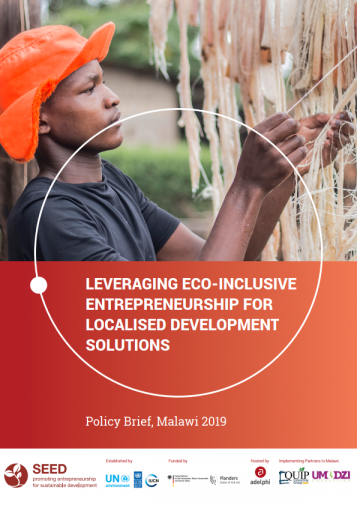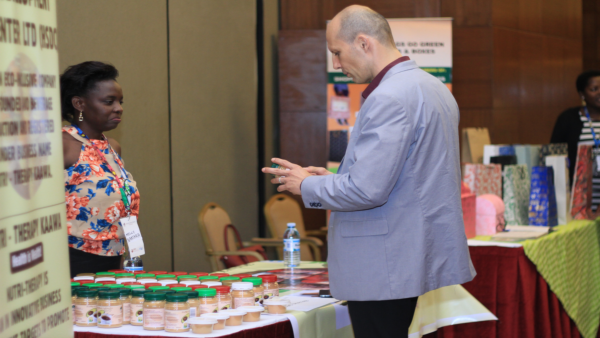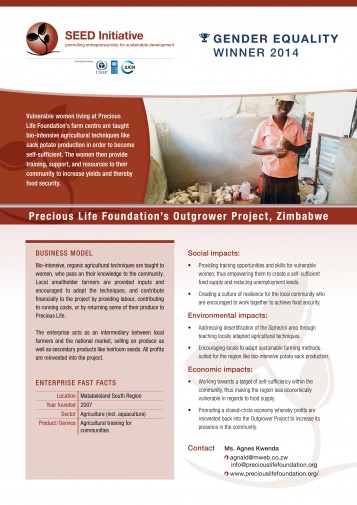Leveraging eco-inclusive entrepreneurship for localised development solutions | Policy Brief Malawi
Published: 21 October 2019 Camilla Shearman, Christine Meyer, Maggie Sloan, Marlena Kiefl
In a global context of commitments to sustainable development and the mitigation of and adaptation to climate change, Malawi has set out ambitious agendas to increase resilience to climate change and move towards a green and inclusive economy. Translating these ambitious agendas into impact at the community level requires concerted efforts in the decentralisation of policy initiatives and capacity building of local actors. SMMEs play a key role in aligning local markets to national development goals, and can have a transformational impact on the achievement of these goals. Drawing on discussions from the SEED policy dialogue and labs process in Malawi, this policy brief presents recommendations to policy makers for leveraging the potential of SMMEs to transform the agriculture, waste, and clean energy sectors in Malawi, and across Southern Africa. Read more
SDGs:



Celebrating Female Entrepreneurship on International Women’s Day 2018
Published: 08 March 2018 Amar Munnolimath, Zaina Batool
At SEED, we embrace the potential of female entrepreneurs and are committed to empowering women. We not only offer equal-opportunity employment and encourage flexible working arrangements to assist families, but also take data-driven action globally to support women entrepreneurs working towards a greener economy and to accelerate female empowerment, including through our past SEED Gender Equality Award scheme. Read more
SDGs:





Enterprise Brief: Precious Life Foundation’s Outgrower Project
Published: 05 September 2014
Vulnerable women living at Precious Life Foundation’s farm centre are taught bio-intensive agricultural techniques like sack potato production in order to become self-sufficient. The women then provide training, support, and resources to their community to increase yields and thereby food security. Read more
SDGs:















